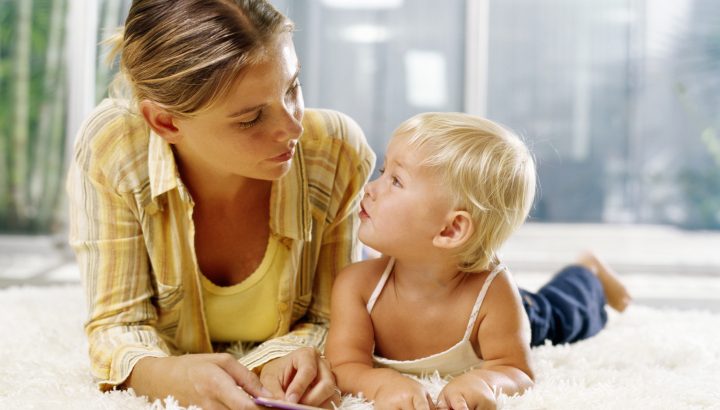The Hollywood mogul, Sam Goldwyn, coined many amusing quotations still in currency – his way of declining an invitation was “Include me out!”
He most famously set a maxim for our age when he suggested that public attention is always helpful – “Any publicity is good publicity.”
It doesn’t turn out to be true in all cases – people have been ruined when the spotlight shone upon their crimes or misdemeanours. Prince Andrew would probably attest to the existence of negative publicity.
But publicity usefully brings into the public realm people and subjects sometimes hitherto overlooked – and publicity can have an unexpected affect.
I hear more and more people asking, ‘have we valued what women – especially mothers – have contributed to the common good by their life within the home?’”
In the case of the upcoming Referendum on ‘the woman in the home’, the general idea was to modernise, by abolition, the Article 41.2 in which the State “recognises that by her life within the home, woman gives to the State support without which the common good cannot be achieved.”
Mothers
Polls have indicated that most people regard the language, at least, as archaic, and there’s an element of finger-wagging in the subsequent clause about women not neglecting their home duties if working at an outside job.
That’s a bit patronising, and some of us may feel that we’ll sort out our home duties ourselves, thank you, and not according to how the State preaches. (And if I choose to have a messy kitchen, that’s my business!)
But the publicity generated around the subject of ‘the woman in the home’ has prompted such a lively debate and public conversation about the situation of women – mostly mothers – in the home that it has launched a reassessment of the role.
No, we probably haven’t. And yes, we undoubtedly should do.
Liberation
Modern feminism was, I now regret to say, very much formed by thinkers who despised the role of the ‘housewife’.
Simone de Beauvoir and Betty Friedan, who published such influential works on female liberation, thought a woman at home was wasting her life.
They saw her as little more than a handmaiden of consumer capitalism – dedicated to shopping and manipulated by advertising.
Earlier generations of feminism hadn’t pondered too much on this subject – because earlier feminists often came from upper-middle-class families where servants did the home maintenance.
(Virginia Woolf worried more about managing the servants than she did about the vote.)
But the Referendum discussion has made us think again about the foundations of home life: and I now see mothers in a younger generation saying they want to be acknowledged for the contribution they make.
More mothers are also explaining that they would like to have the choice to be at home with their young children”
The Referendum is prompting people to think much more about motherhood’s role. Dr Finola Kennedy, the economist and authority on family history, wrote, in connection with changing Article 41: “There is more to motherhood than the ‘provision of care’ [the recommended replacement].
“For a start, a mother carries a baby in her womb for nine months. Then she might breastfeed for another nine months. These are not jobs that can be done by ‘carers’ no matter how close the ‘bonds’.” She was not advocating for either side, simply reflecting on a biological maternal bond that is unique.
Ironically, even if Article 41 is abolished in the present form, perhaps the outcome will have been to value more seriously just how much women at home have indeed supported ‘the common good’.
The school of life
Stories and movies about school life often portray truths about life in general, and I was glad to see that the film The Holdovers won awards at the Baftas (and should do at the Oscars). It’s an engaging tale about a crusty old bachelor teacher (Paul Giametti) who is forced to look after the boarding school lads who can’t go home for Christmas – the ‘holdovers’. The black actress Da’Vine Joy Randolph was awarded for her touching performance as a bereaved mother. Boston is beguiling as well.
***
Fr Bruce Bradley’s homily at the funeral of John Bruton was widely acknowledged for its eloquence – and his apt quotation of Seamus Heaney on the evaporation of the transcendent in our inner lives. (Some mainstream media reporters seemed to express surprise that a Catholic priest could be a literary intellectual.)
Bruce Bradley SJ, former Principal of Clongowes Wood College, is a person of erudite literary learning.
He wrote the entry for James Joyce in the official Dictionary of Irish Biography, and it is one of the most enlightening, scholarly but accessible essays one could read about Joyce and his works. You’ll never need another biography of the author of Ulysses.
(The excellent Royal Irish Academy’s Dictionary of Irish Biography is available online, and via all public libraries.)


 Mary Kenny
Mary Kenny
